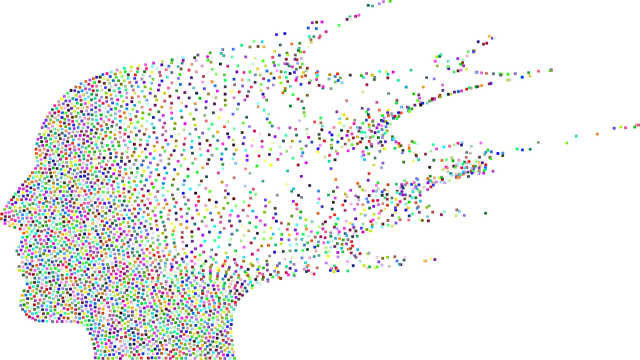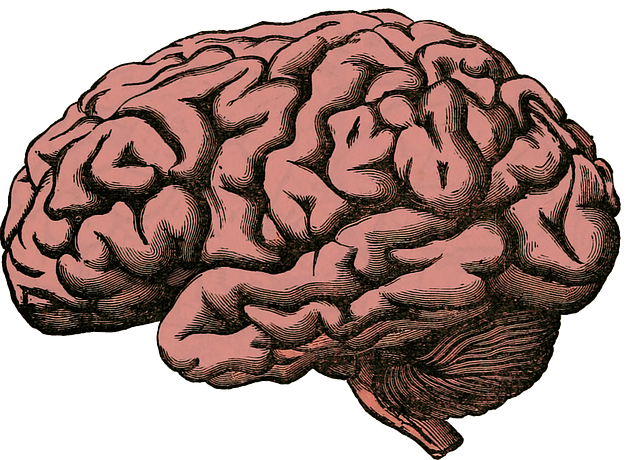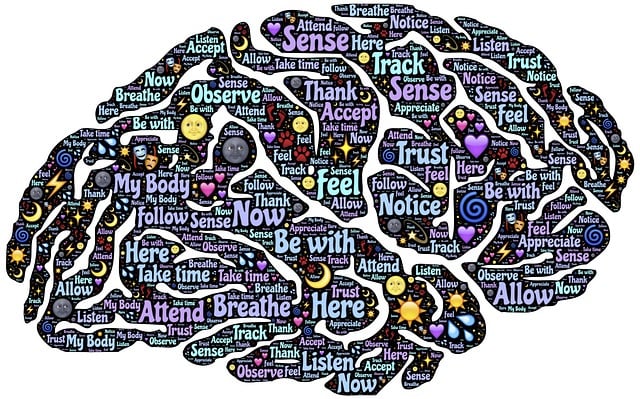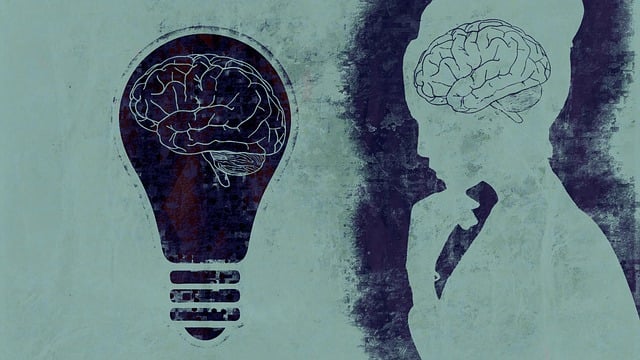Therapy for elders with Attention Deficit Disorder – Hyperactivity (ADD-ADHD) focuses on emotion regulation, addressing challenges like impulsivity and focus issues. Mindfulness Meditation and trauma support are key tools, while comprehensive risk assessment ensures tailored care. Life transitions and co-occurring mental health issues complicate emotion regulation in aging adults, making targeted interventions crucial for community outreach and healthcare provider training. Tailored therapy approaches, including Cognitive Behavioral Therapy (CBT) and mindfulness practices, significantly improve emotional well-being by changing thought patterns and fostering resilience. Integrating cultural sensitivity, stigma reduction, and at-home/community practices empowers elders to manage emotions effectively, reducing depression risk and enhancing quality of life specifically for ADD-ADHD.
Emotion regulation techniques are crucial for elders with Attention Deficit Disorder – ADHD (ADD) as they navigate the complexities of aging. This article explores effective strategies to manage emotional dysregulation in older adults, addressing common challenges faced by this demographic. We delve into proven therapy approaches and practical home/community-based solutions tailored for those with ADD-ADHD. Understanding these techniques is vital for enhancing quality of life and overall well-being in the senior population, specifically focusing on therapeutic interventions for elders with ADD-ADHD.
- Understanding Emotion Regulation for Elders with ADD-ADHD
- The Impact of Emotional Dysregulation in Aging Adults
- Common Challenges Facing Elders with ADD-ADHD in Managing Emotions
- Effective Therapy Approaches for Teaching Emotion Regulation Skills
- Practical Strategies to Implement at Home and Community Settings
Understanding Emotion Regulation for Elders with ADD-ADHD

Understanding Emotion Regulation is a critical component in providing effective therapy for Elders with Attention Deficit Disorder – Hyperactivity (ADD-ADHD). This population often faces unique challenges when it comes to managing their emotions due to the persistent symptoms associated with ADD-ADHD, which can include impulsivity, difficulty focusing, and restlessness. These symptoms may make it harder for elders to recognize and regulate their emotional responses, leading to heightened stress levels and potential mental health complications.
Mindfulness Meditation has emerged as a valuable tool in emotion regulation strategies for this demographic. Through mindfulness practices, elders with ADD-ADHD can learn to observe their emotions without judgment, fostering a better understanding of their triggers and patterns. This self-awareness is crucial in developing effective coping mechanisms. Additionally, Trauma Support Services should be considered, especially if unaddressed trauma contributes to emotional dysregulation. A comprehensive risk assessment for mental health professionals is essential to ensure the best support and treatment approach for each individual.
The Impact of Emotional Dysregulation in Aging Adults

Emotional dysregulation can significantly impact aging adults, leading to a variety of challenges that often go overlooked. As individuals age, they may face increased feelings of loneliness, loss, and anxiety due to life transitions, such as retirement or the death of loved ones. Without effective emotion regulation techniques, these emotions can spiral out of control, exacerbating existing mental health issues or even contributing to physical ailments. For example, chronic stress resulting from emotional dysregulation has been linked to cardiovascular diseases, cognitive decline, and weakened immune systems in older adults.
Moreover, the presence of co-occurring conditions like Attention Deficit Hyperactivity Disorder (ADD-ADHD) can complicate matters further. Older adults with ADD-ADHD may struggle more intensely with emotional regulation due to challenges managing impulsivity and focusing on coping strategies. This is where targeted interventions, such as those offered through community outreach programs or healthcare provider cultural competency training, become vital. Crisis intervention guidance tailored for aging populations with mental health concerns can help individuals develop healthier ways of processing emotions, thereby enhancing their overall quality of life.
Common Challenges Facing Elders with ADD-ADHD in Managing Emotions

Elders with Attention-Deficit/Hyperactivity Disorder (ADD-ADHD) often face unique challenges when it comes to emotion regulation. As they navigate an increasingly complex world, they may struggle with maintaining focus and managing impulsive behaviors, which can significantly impact their emotional well-being. The combination of age-related cognitive changes and the persistent symptoms of ADD-ADHD can make everyday tasks more demanding, leading to heightened stress levels and emotional instability.
One of the primary difficulties is the lack of coping skills developed over time. Many elders with ADD-ADHD have not been equipped with effective strategies to handle intense emotions, resulting in impulsive reactions. Building resilience and learning adaptive behaviors are essential components of therapy for Elders with ADD-ADHD. Through tailored interventions, mental health professionals can assist these individuals in developing coping skills, enhancing their ability to manage stress, and improving overall emotional regulation. This process involves teaching mindfulness techniques, encouraging healthy lifestyle changes, and implementing risk management planning to ensure better mental health outcomes.
Effective Therapy Approaches for Teaching Emotion Regulation Skills

Teaching emotion regulation skills is a powerful tool for individuals to manage their mental health effectively. For elders with Attention Deficit Hyperactivity Disorder (ADD-ADHD), tailored therapy approaches can significantly enhance their emotional well-being. Cognitive Behavioral Therapy (CBT) has proven effective in helping these individuals identify and change negative thought patterns, which can trigger intense emotions. By learning to challenge distorted thinking and adopt more balanced perspectives, elders with ADD-ADHD can develop better coping strategies.
Mindfulness-based therapies are another valuable option. These practices encourage individuals to focus on the present moment without judgment, fostering a sense of calm. Techniques such as deep breathing exercises, meditation, and mindful movement can help regulate emotions and improve overall resilience. Cultural sensitivity in mental healthcare is crucial when adapting these approaches for diverse populations. Considering cultural backgrounds and incorporating relevant interventions ensures that therapy aligns with individual beliefs and values, promoting effective emotional regulation. Additionally, mental illness stigma reduction efforts should be integrated into treatment plans to create a supportive environment where elders feel comfortable expressing their emotions freely.
Practical Strategies to Implement at Home and Community Settings

Teaching emotion regulation techniques at home and community settings offers a powerful approach to enhancing mental wellness, especially for elders with ADD-ADHD. Simple yet effective strategies such as mindfulness exercises and breathing techniques can be incorporated into daily routines to help individuals manage their emotions more effectively. For instance, encouraging regular mealtime conversations or engaging in joint hobbies can foster social skills training while promoting emotional expression.
Community programs focused on mental wellness coaching can further support elders with ADD-ADHD by providing structured environments for learning and practice. These programs often include group activities that encourage peer support and collaborative problem-solving, thereby enhancing overall well-being. By combining at-home practices with community-based initiatives, elders can develop robust emotion regulation skills, reducing the risk of depression prevention and improving their quality of life.
Emotion regulation techniques are invaluable tools for elders with ADD-ADHD, addressing a critical aspect of their overall well-being. By understanding the unique challenges they face and implementing effective therapy approaches, such as cognitive-behavioral therapy (CBT) and mindfulness practices, significant improvements in emotional dysregulation can be achieved. Practical strategies outlined in this article provide a roadmap for both professionals and caregivers to foster positive mental health outcomes in aging adults with ADD-ADHD, ultimately enhancing their quality of life through specialized therapy for elders with ADD-ADHD.













